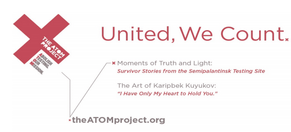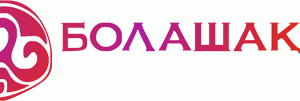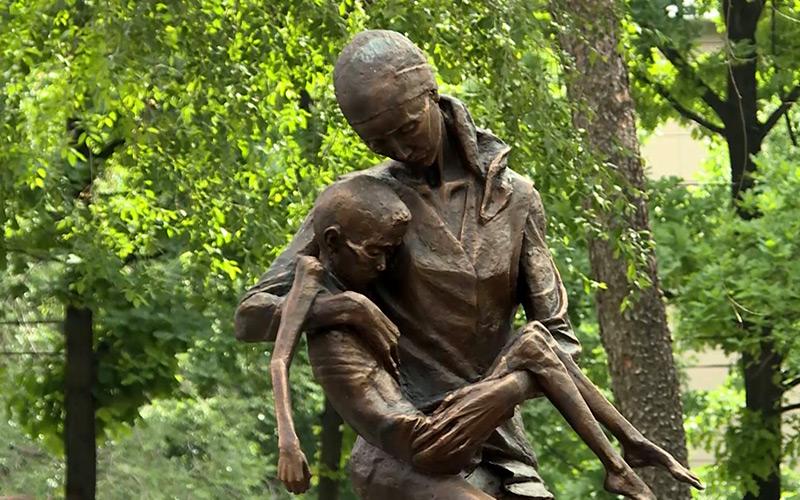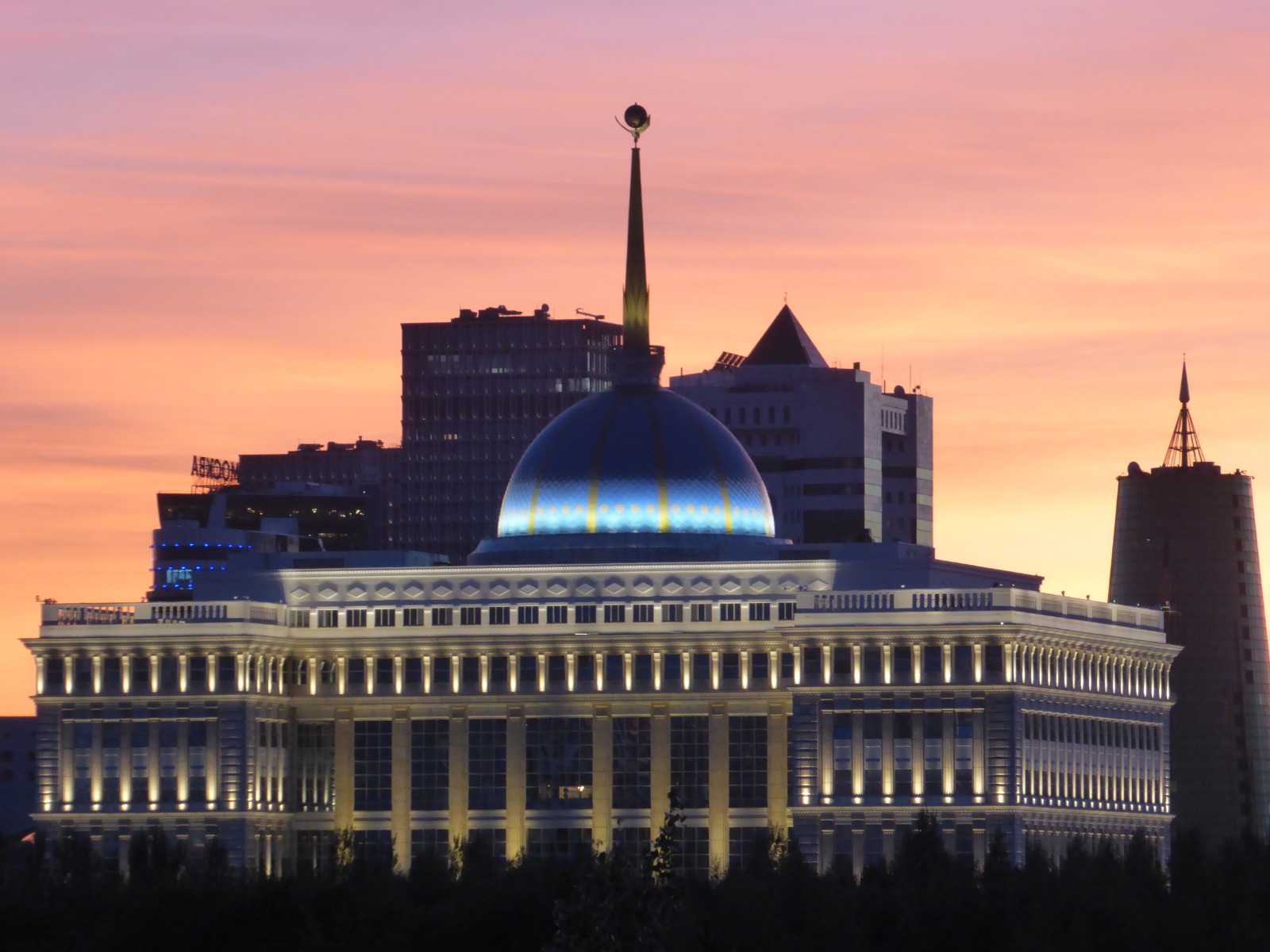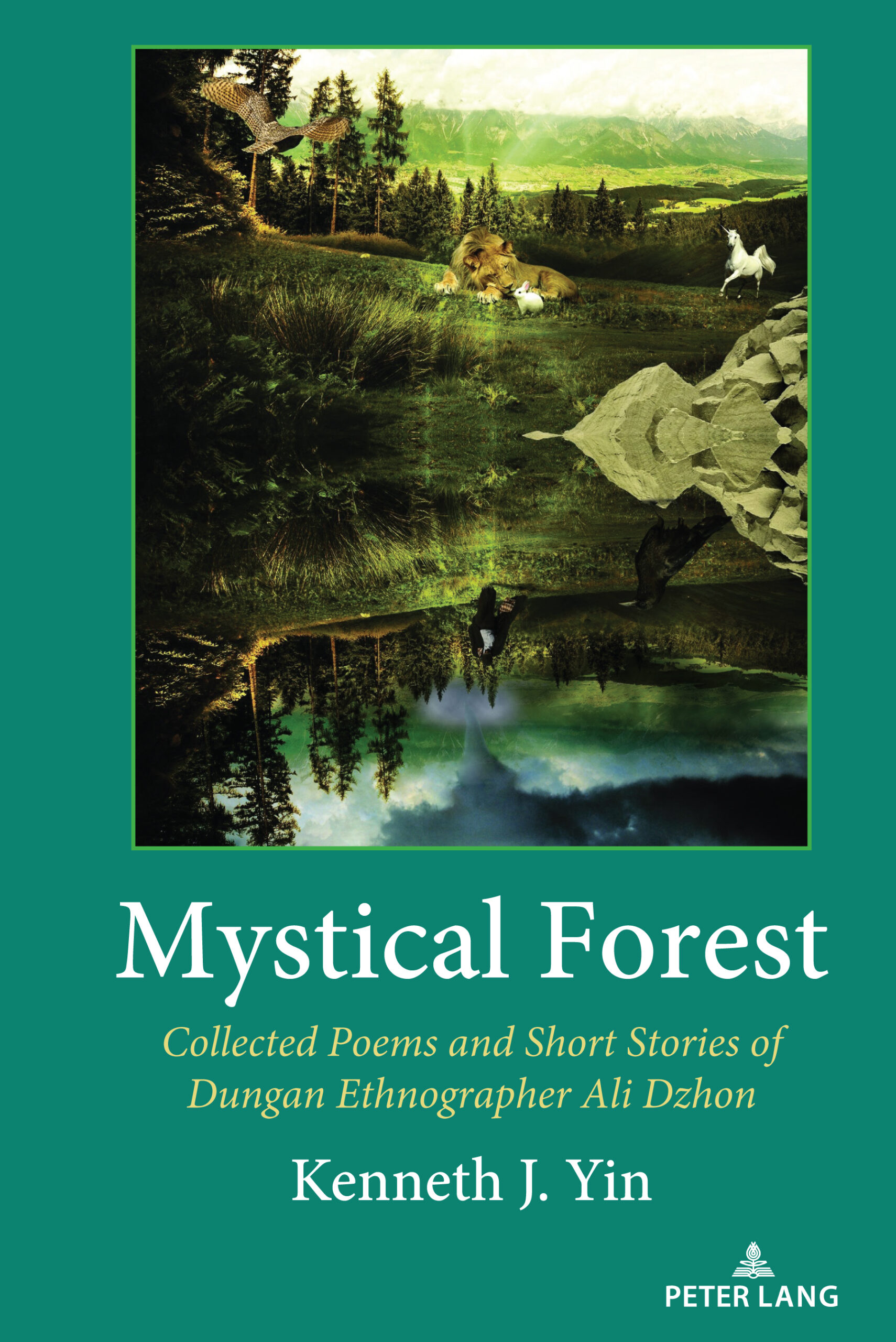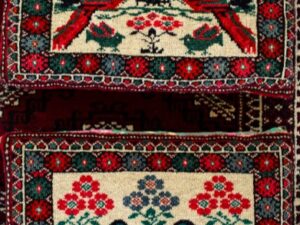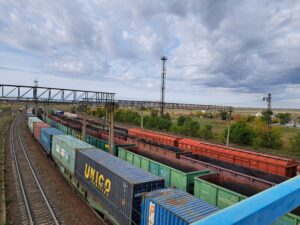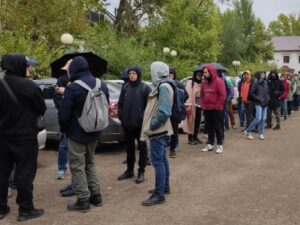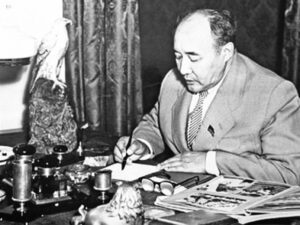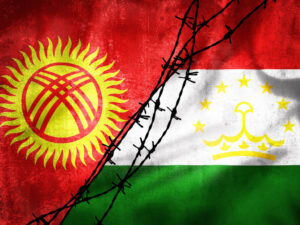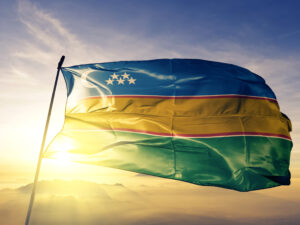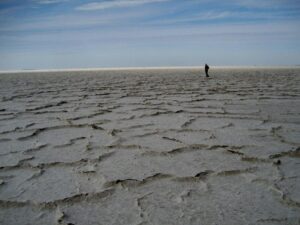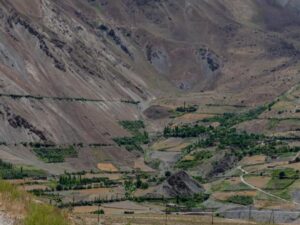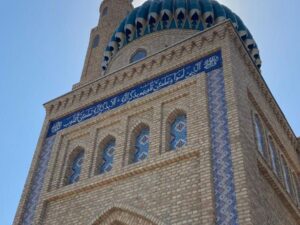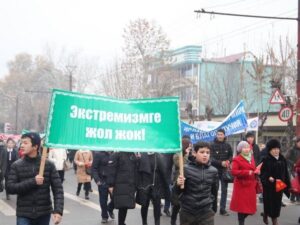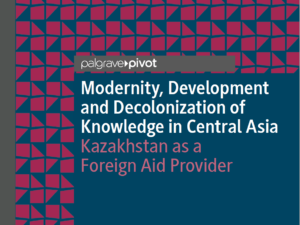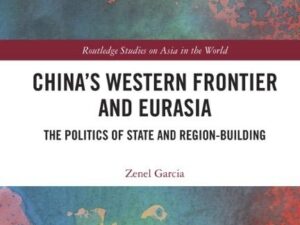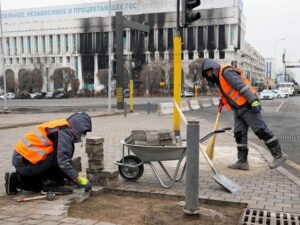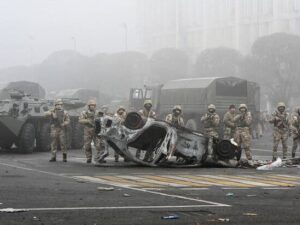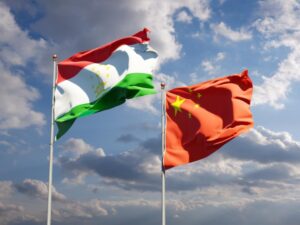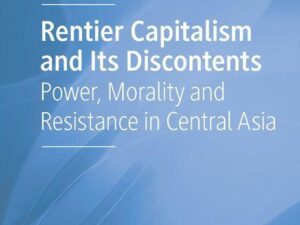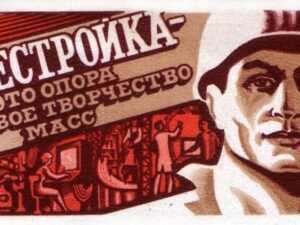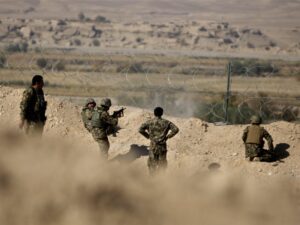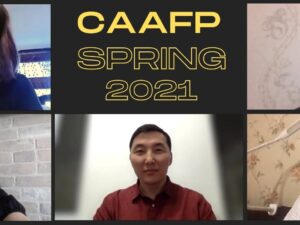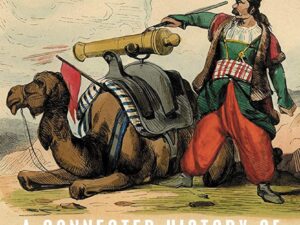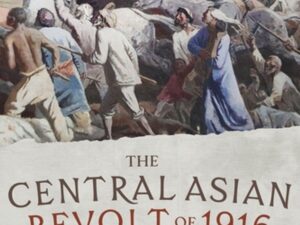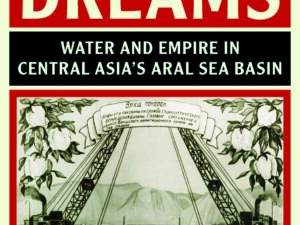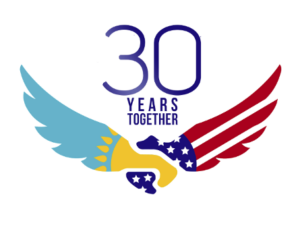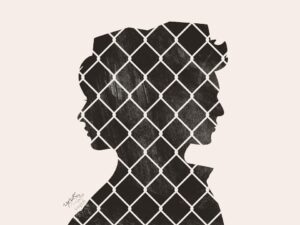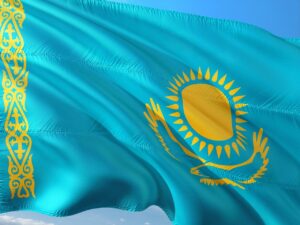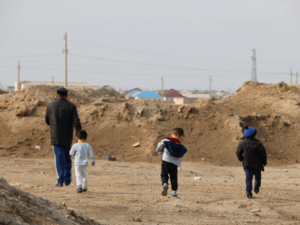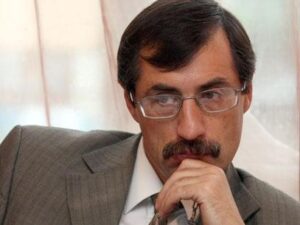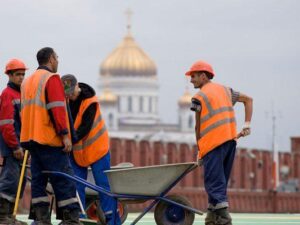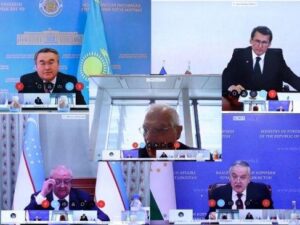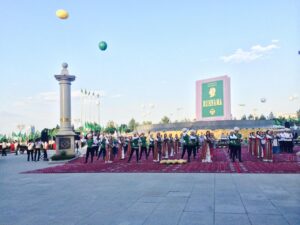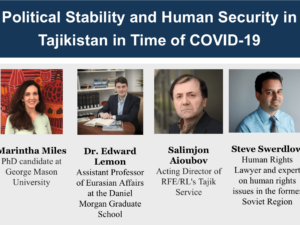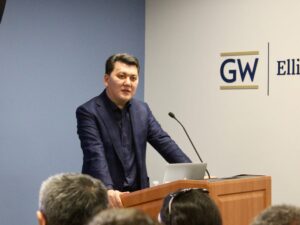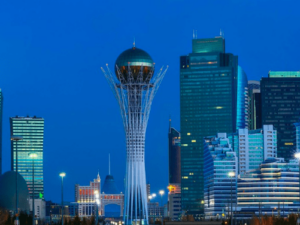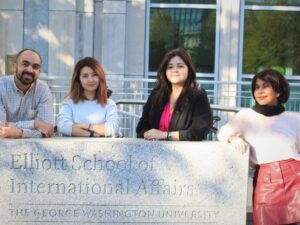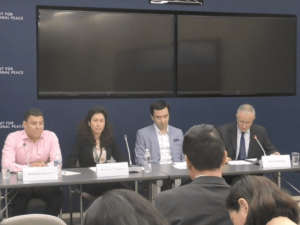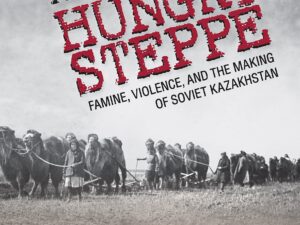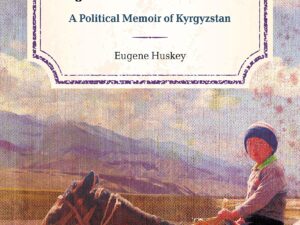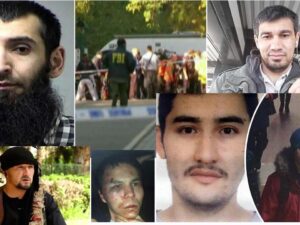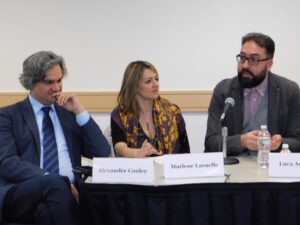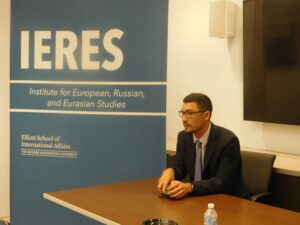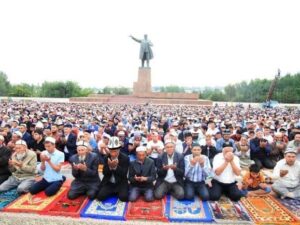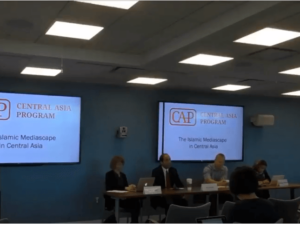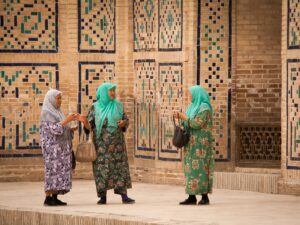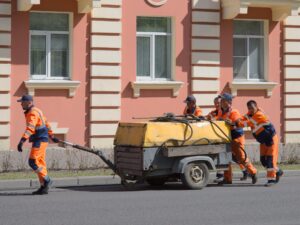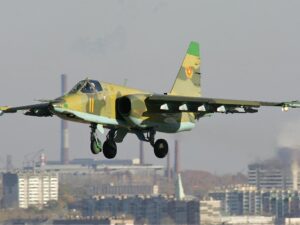Towards a World Without Nuclear Weapons Testing
with Karipbek Kuyukov, ATOM Project Honorary Ambassador and Artist, and Roman Vassilenko, Ambassador-at-Large, Ministry of Foreign Affairs of KazakhstanThe ATOM Project (Abolish Testing Our Mission) is an international campaign designed to…
Youth in Kazakhstan: Societal Changes, Challenges and Opportunities
9:00am Registration and Breakfast 9:15am Opening Peter Rollberg, Director, IERES, The George Washington University Ambassador Kairat Umarov, Kazakhstan Embassy in the United States 9:30‐10:00am Keynote speaker Ambassador Richard Hoagland, Principal Deputy Assistant Secretary, Bureau of South…
Prospects for Regional Integration in Central Asia
12:00-12:30pm Lunch 12:30pm Opening remarks. DCM Yerkin Akhinzhanov, Kazakhstan Embassy in the United States Fatema Z. Sumar, Deputy Assistant Secretary of State for South and Central Asia Affairs at the…
Kazakh security policy and its position as a vanguard for East-West cooperation
with Dr. Marcel de Haas, Professor, Nazarbayev University This presentation first describes the foundations of Kazakh security policy, i.e. the key security-related documents, especially the Law on National Security, the Military…
The First Bolashak Seminar
9:00am Opening Remarks.Marlene Laruelle (Central Asia Program, IERES, GWU) 9:15-10:00 Panel 1. Societal transformations in Kazakhstan Serik Beissembayev (Social Found “Centre for Social and Political Studies Strategy”) Symbolic Boundaries of Ethnic…
Documentary Film Screening: “550 Years of the Kazakh Khanate”
with Mr. Andrey Khazbulatov, Director General of the Kazakh Science and Research Institute of Culture under the Ministry of Culture and Sports The documentary, based on a historical opus “Within the…
Political and Economic Trends in Kazakhstan: Risks, Threats, and Prospects
For several years, the Kazakhstani state has been actively expanding its participation in different spheres of public life, and concentrating resources in the financial, political, and media sectors. Several so-called umbrella structures work…
Discussion with Rabbi Yeshaya Cohen, Chief Rabbi of the Republic of Kazakhstan
Rabbi Yeshaya Cohen was born in 1971 in Jerusalem, Israel. In 1993, he became assistant to the rabbi of the Grand Choral synagogue in St. Petersburg, Russia, and since 1994 he has…
Cinema Club: “The Liquidator” (Kazakhstan 2011)
"Ex-Special Forces officer Arsen sets out to avenge his brother's murder and uncovers a massive conspiracy involving the wealthy and powerful elite as he works his way up through the…
Kazakhstan Nationbuilding and Kazakh Nationalism: A Debate
A new social activism has emerged in Kazakhstan, organized by different small groups self-defining as Kazakh nationalists. Who are they? What is their audience? What political and national projects do…
Yerken Turganbayev – Regional Disparities in Kazakhstan
Economic development in Kazakhstan was accompanied by increasing disparities across the country's various regions, which has contributed to a number of social and economic problems. The urgency to find a solution…
David Kemme & Kassymkhan Kapparov – The Evolution of the National Oil Fund of Kazakhstan: Inception, Utilization and Expectations
The National Oil Fund of Kazakhstan (NOF) was created by Presidential Decree in 2002. Funded by direct taxes and royalties from natural resource producers, it was intended to be…
Douglas Blum – Cosmopolitan Kazakhs: A Case Study in How Globalization Works
On the basis of extensive fieldwork in Kazakhstan, Douglas Blum considers the experiences of young people who spent time in the US, asking what cultural "baggage" they brought home with…
CAP Roundtable on “Muslim Middle Class” vs the Islamic State: National Identity and Revolutionary Justice in Kazakhstan
withNoah Tucker RFE/RL, CAP Associate Zhuldyz Tuleouva Kazakhstan Producer of "Not in Our Name," RFE/RL project Serik Beissembayev Strategia Sociological Center, former CAP fellow Aurelie Biard NAC-NU Postdoctoral fellow, GWU…
Kazakhstan’s Policy on Multilingualism with Jill Neuendorf
Webex Virtual EventIn this presentation, Jill Neuendorf examines the advantages and disadvantages of Kazakhstan’s Trinity Language Program. She presents the findings of qualitative research conducted in Almaty, Kazakhstan in July 2019 with…
Remembering Kazakhstan’s Great Famine of the 1930s
May 31 marks the Remembrance Day of the Victims of Political Repression and Famine in Kazakhstan. The great famine of 1931–1933, also known as Asharshylyk, resulted from forced collectivization and sedentarization undertaken…
Book Launch – The Cinema of Soviet Kazakhstan 1925-1991: An Uneasy Legacy
The Cinema of Soviet Kazakhstan 1925-1991: An Uneasy Legacy Featuring Peter Rollberg, Professor of Slavic Languages, Film Studies and International Affairs Join us on a journey through the history of Kazakh…
Atomic Steppe: How Kazakhstan Gave Up the Bomb
The Central Asia Program invites you to a Nuclear Policy Talk presented by the Institute for International Science and Technology Policy Atomic Steppe: How Kazakhstan Gave Up the Bomb Featuring…
Modernity, Development and Decolonization of Knowledge in Central Asia: Kazakhstan as a Foreign Aid Donor
Join us for an online book launch with the author Nafissa Insebayeva, discussants Syinat Sultanalieva and Sofya du Boulay. This book joins the discussion on foreign aid triggered by the…
Concert by a Kazakhstani ethno-folk ensemble TURAN
Elliott School of International Affairs, Room 213 1957 E St NW, WashingtonIn celebration of Nowruz, the Central Asia Program, the Abai Center, and the Embassy of the Republic of Kazakhstan in the United States are thrilled to invite you to a…
Policies on Ethnic Minorities in Kazakhstan
Lindner Family Commons, 6th floor GW’s Elliott School of International Affairs 1957 E St NW, WashingtonWhere Are We Now? Kazakhstan is home to more than 100 ethnic minorities comprising about 30% of the population, reflecting an imperial and Soviet past that sent colonists, dissidents, and minority groups…
Nuclear and Biological Nonproliferation: Lessons from Kazakhstan and Central Asiakaza
Stronger than Death memorial, Semei, Kazakhstan. Image Source: astanatimes.com In a world increasingly defined by bellicose rhetoric, nuclear nonproliferation is no longer taken for granted. In a post-Covid world, pandemics…
Kazakhstan’s Bloody January: Protest Motivations, Public Perceptions and Human Rights
Online discussion co-organized by the PaperLab Research Center (Astana, Kazakhstan) In the first days of 2022, Kazakhstan witnessed a series of protests that sent shockwaves through the country. The response…
Book presentation: “Mystical Forest: Collected Poems and Short Stories of Dungan Ethnographer Ali Dzhon”
Born in Shor-Tyube, Kazakh Soviet Socialist Republic, USSR, in 1951, Dungan ethnographer and creative writer Ali Dzhon is widely regarded as the pre-eminent writer on the material and spiritual culture…

